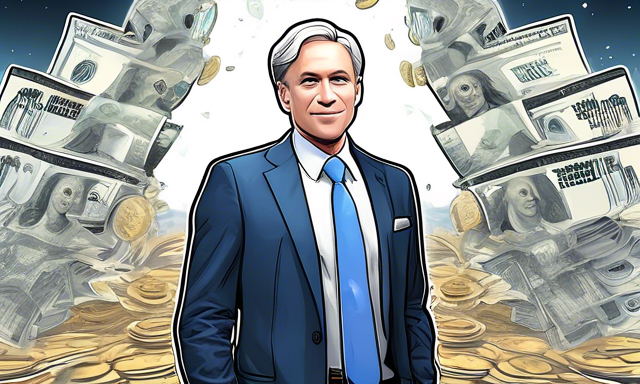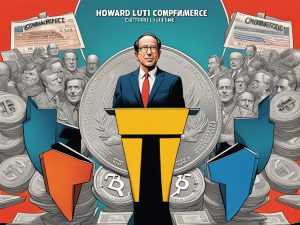🚀 Bitcoin on the Rise Post-Election: Insights from Adam Kobeissi
In a recent discussion, Adam Kobeissi, the founder of ‘The Kobeissi Letter,’ confidently suggests that Bitcoin’s value is poised for a significant upturn following the upcoming election. This article highlights various factors influencing the current economic landscape, including inflation trends and the stock market’s reaction to political shifts.
📉 Understanding Inflation’s Impact on Bitcoin
Inflation remains a critical concern for many families in the United States, as rising prices strain household budgets. According to Kobeissi, the dollar’s purchasing power has drastically diminished since the start of 2020, affecting everyday Americans. Many believe that we are currently in a recession, indicating widespread concern regarding the economic environment.
Kobeissi observes that while inflation appears to be stabilizing, the underlying economic conditions are still problematic. The Consumer Price Index (CPI) shows a decline, but a significant portion of inflation persists in essential categories, such as vehicle insurance and food costs. This compounded effect keeps inflation at elevated levels, causing substantial hardship for many households.
🔍 Key Influences on Bitcoin Valuation
-
Economic Indicators
- Policymakers remain cautious about interest rates while managing inflation, leading to uncertainty in financial markets.
-
Stock Market Dynamics
- Kobeissi notes that the stock market often reacts positively during election years, historically providing favorable returns. He cites data from past elections indicating that numerous years ended with profits for the S&P 500.
- Institutional Sentiment
- The growing interest in cryptocurrencies, particularly Bitcoin as a hedge against inflation, reflects changing investor attitudes. While traditional asset classes face challenges, Bitcoin is increasingly seen as a viable alternative.
🎯 Evaluating the Stock Market Landscape
Kobeissi highlighted that Warren Buffett’s substantial cash reserves signal caution among institutional investors. Concerns about market corrections can lead to strategic adjustments in portfolios, causing investors to seek opportunities in inflation-hedged assets like Bitcoin.
The discussion also touched on the idea that, despite the volatility of the stock market, numerous opportunities exist to benefit from price corrections. Kobeissi’s perspective is that, despite potential pitfalls, the underlying trend is geared towards growth, particularly in tech stocks.
⚖️ Navigating the Current Economic Environment
-
Housing Market Challenges
- The surge in home prices alongside stagnant wage growth has made homeownership increasingly difficult for many potential buyers.
-
Real Estate Market Dynamics
- Fewer homes are available for sale, leading to increased competition among buyers, exacerbated by rising interest rates.
- Institutional Investment Trends
- Historical data indicates that certain sectors tend to flourish during election cycles. The interplay between political climates and market performance remains a central theme as 2024 approaches.
🔮 The Future of Bitcoin and Central Banks
Adam Kobeissi believes that the eventual adoption of Bitcoin by central banks could accelerate its value, likening the current environment to previous asset bubbles. He asserts that Bitcoin’s cap could rise significantly should central banks start holding it as part of their reserves.
🚨 Hot Take: A New Era for Bitcoin?
As Bitcoin captures the attention of institutional investors and common citizens alike, its potential cannot be underestimated. With the backdrop of a changing economy and political landscape, the market might be ripe for Bitcoin’s long-term rise. The fundamental shifts in the regulatory framework surrounding cryptocurrencies further fuel this optimism.
In summary, as the economy continues to evolve amidst challenges like inflation and market volatility, Bitcoin emerges as a compelling asset to watch. Many analysts, including Kobeissi, predict substantial growth for digital currencies in the near future, especially as macroeconomic conditions wane.





 By
By
 By
By
 By
By

 By
By